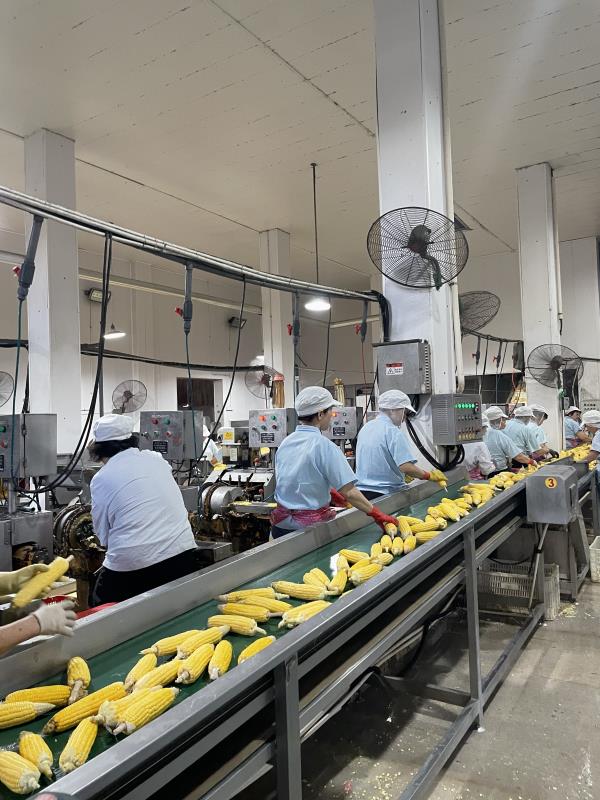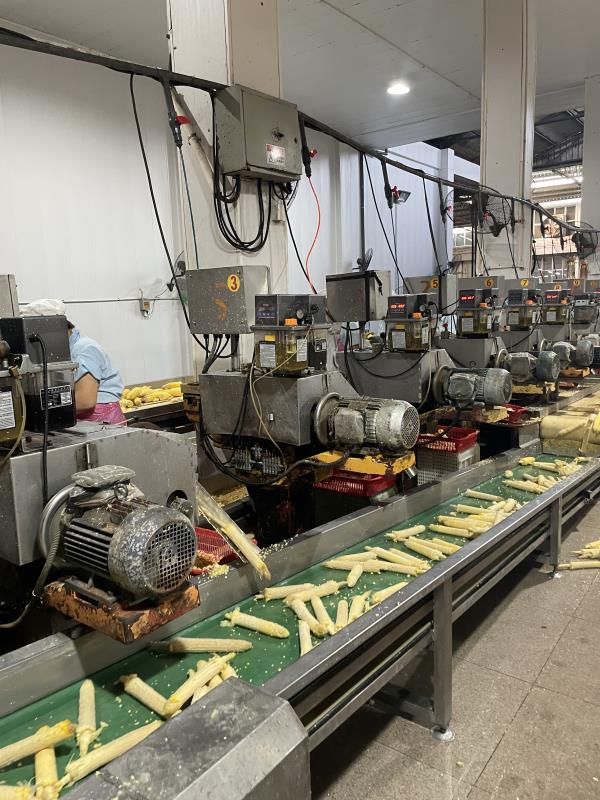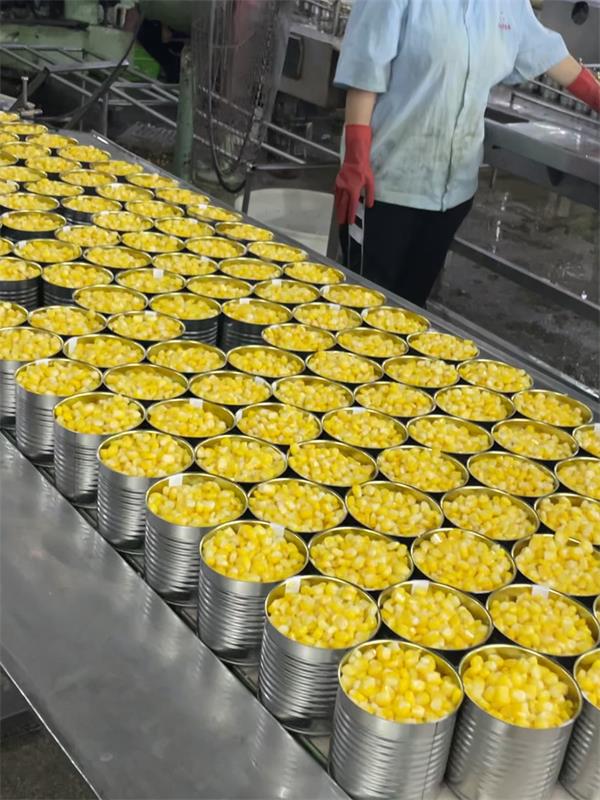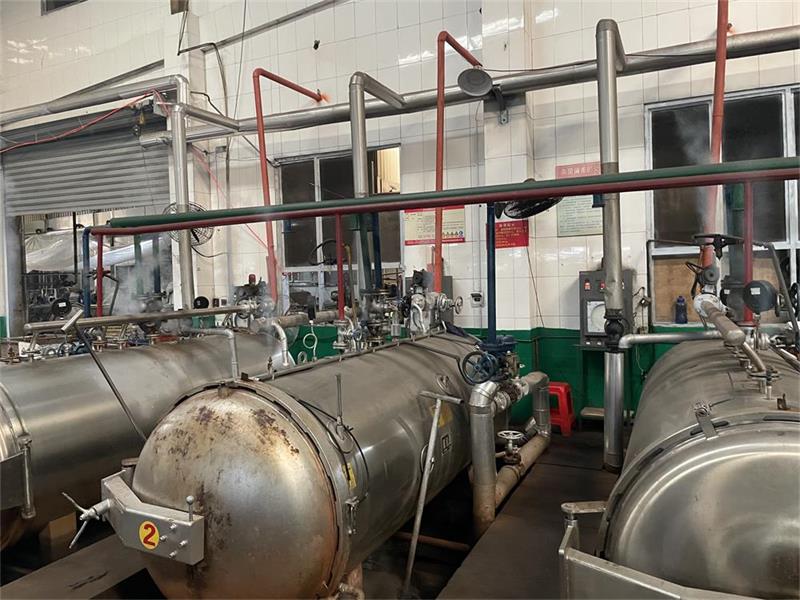Canned sweet corn is a popular pantry staple, valued for its convenience, long shelf life, and the ability to retain the natural sweetness and nutrients of fresh corn. Understanding the production process of canned sweet corn can help consumers appreciate the care and precision that goes into delivering a high-quality product. In this article, we will explore the step-by-step process involved in canning whole kernel corn and sweet corn, from harvesting to the final sealed can.
Harvesting and Selection
The production process of canned sweet corn begins with the harvesting of fresh corn at its peak ripeness. Corn is typically harvested in the early morning when the moisture content is highest, ensuring the kernels are plump and juicy. For canning whole kernel corn, only the best ears are selected, as the quality of the kernels is paramount. These selected ears are then transported quickly to the processing facility to preserve their freshness. The sweet corn can process emphasizes selecting varieties with naturally high sugar content, which is critical for delivering the sweet flavor that consumers expect.
Cleaning and Preparation
Once the corn arrives at the processing facility, it undergoes a thorough cleaning process. The ears of corn are husked, and any remaining silk is removed to ensure cleanliness. The corn is then inspected to remove any damaged or imperfect ears. After cleaning, the kernels are cut from the cob using specialized machinery that ensures uniform size and minimal waste. For sweet corn can products, this step is particularly important, as consistent kernel size contributes to the overall texture and appearance of the final product.
Blanching and Cooking
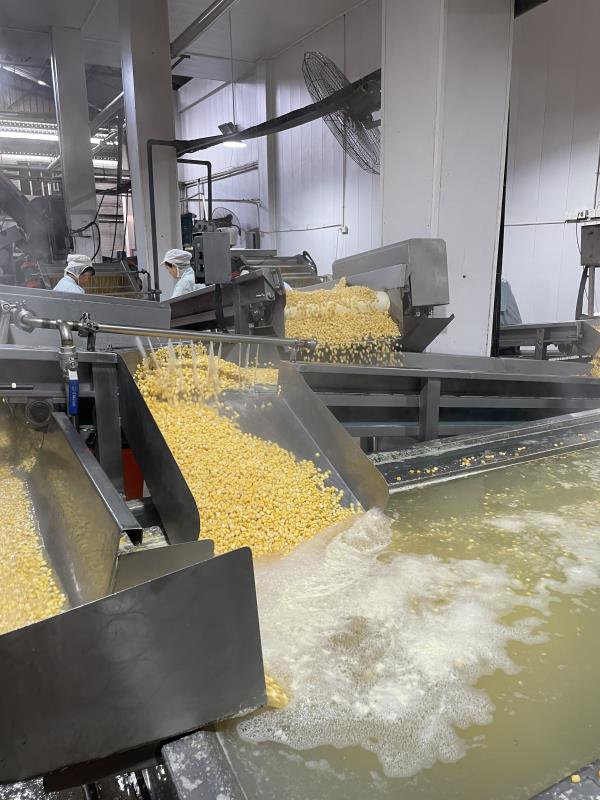
Blanching is a crucial step in the canning process, as it helps to preserve the color, flavor, and nutritional value of the corn. During blanching, the corn kernels are briefly submerged in hot water or steam, which halts enzyme activity that could cause spoilage. Blanching also softens the kernels slightly, preparing them for the canning process. After blanching, the corn is quickly cooled to prevent overcooking. For sweet corn can products, the blanching process is carefully timed to maintain the delicate sweetness of the kernels while ensuring they are properly cooked.
Canning and Sealing
Following blanching, the corn kernels are packed into sterilized cans, and a liquid, often a mix of water and salt, is added to fill any air pockets. This liquid helps to preserve the corn and ensures even cooking during the final stage of processing. For canning whole kernel corn, the liquid is usually kept simple to allow the natural flavor of the corn to shine through. Once the cans are filled, they are sealed with airtight lids to prevent contamination and maintain freshness. The sealing process is critical, as it ensures that the product remains safe to eat even after extended storage.
Sterilization and Quality Control
The final step in the production process of canned sweet corn is sterilization. The sealed cans are subjected to high temperatures in a retort, which destroys any remaining bacteria and ensures the corn is fully cooked. This step is essential for extending the shelf life of the product and ensuring it is safe for consumption. After sterilization, the cans are cooled, labeled, and packed for distribution. Throughout this process, strict quality control measures are in place to monitor the integrity of the seals, the consistency of the product, and the overall safety of the canned corn. This attention to detail ensures that every sweet corn can or whole kernel corn can product meets high standards of quality.
Conclusion
The production process of canned sweet corn is a meticulous and carefully controlled operation that ensures the product retains its natural flavor, texture, and nutritional value. From harvesting the best ears to the final sealing and sterilization, each step is designed to preserve the quality of the corn. Whether you’re enjoying canning whole kernel corn or a sweet corn can product, you can be confident that a significant amount of expertise and care has gone into bringing this versatile and delicious food to your table. Understanding this process not only enhances your appreciation for canned corn but also highlights the importance of choosing high-quality products for your meals.

